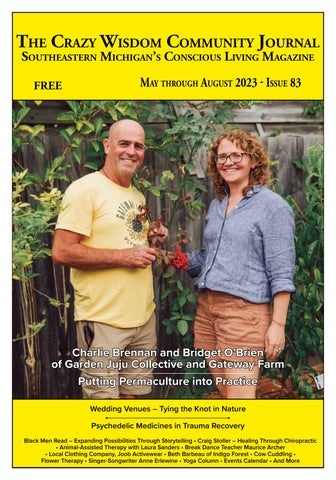
Cultivate Change: Turning Local Ordinances into Homesteading Opportunities in Wake County, NC
Imagine stepping out your back door into a symphony of clucking hens, the earthy aroma of rich compost mingling with the sweet scent of ripening tomatoes. A vision of fresh eggs daily, a thriving garden nourished by natural fertilizer, and a deeper connection to the food you eat. For many in Wake County, North Carolina, this vision of urban and suburban homesteading is more than just a dream; it's a tangible reality. But with that reality comes a crucial understanding of the regulations that shape it. A new ordinance regarding backyard chickens and small livestock – specifically, Wake County Unified Development Ordinance, Section 3.7, Animal Regulations – has the potential to significantly impact homesteaders' ability to cultivate self-sufficiency. Let's grab a mug of herbal tea and delve into the details.

The Real Impact: Eggs, Compost, and Community… or Fines, Disputes, and Disappointment?
The potential impact of the Wake County Unified Development Ordinance, Section 3.7, Animal Regulations, is two-fold. On one hand, clear guidelines can prevent the chaos and conflict that can arise from unregulated animal keeping. Imagine a scenario where neighbors are subjected to excessive noise, unpleasant odors, or unsanitary conditions due to improperly managed livestock. The ordinance aims to mitigate these issues, fostering a more harmonious community.
However, overly restrictive regulations can stifle the growing movement of urban and suburban homesteading. Consider the family eager to reduce their environmental footprint, provide their children with hands-on learning experiences, and enjoy the unparalleled taste of fresh, homegrown eggs. If the ordinance imposes cumbersome permitting processes, exorbitant fees, or unrealistic space requirements, it can effectively shut down their dreams of self-sufficiency. The consequences extend beyond individual families, potentially hindering the development of more resilient and sustainable local food systems. Will it mean more families are able to enjoy farm-fresh eggs and revitalize their gardens with compost? Or will homesteaders be drowning in red tape?
Decoding the Ordinance: What Wake County Homesteaders Need to Know
The Wake County Unified Development Ordinance, Section 3.7, Animal Regulations, covers a range of topics, including:
Permitted Animals: The ordinance outlines which animals are permitted on residential properties and under what conditions. Chickens are generally allowed, subject to specific regulations, but larger livestock like goats, pigs, or cows are typically prohibited in most residential zones. Key Takeaway: Understand which animals are explicitly permitted or prohibited in your zoning district.
Number of Animals: There are limitations on the number of animals you can keep based on your lot size. For chickens, the ordinance may specify a maximum number of hens allowed per acre or square footage of property. Key Takeaway: Know the maximum number of chickens or other permitted animals allowed on your property based on your lot size.
Setback Requirements: The ordinance typically requires coops and enclosures to be set back a certain distance from property lines, neighboring dwellings, and other sensitive areas. This helps minimize noise and odor impacts on neighboring properties. Key Takeaway: Ensure your coop and enclosure meet the required setback distances to avoid violations.
Coop and Enclosure Standards: The ordinance may outline specific requirements for coop design, construction materials, and maintenance. These standards aim to ensure animal welfare, prevent escapes, and minimize aesthetic impacts. Key Takeaway: Build and maintain your coop and enclosure according to the standards outlined in the ordinance.
Waste Management: Proper waste management is crucial for preventing odors and attracting pests. The ordinance may require you to dispose of manure and other animal waste in a sanitary manner. Key Takeaway: Implement a composting or waste disposal system that complies with the ordinance.
Nuisance Regulations: Even if you comply with all other regulations, you can still be cited for a nuisance if your animals create excessive noise, odors, or other disturbances that negatively impact your neighbors. Key Takeaway: Practice responsible animal husbandry to minimize potential nuisances and maintain good relationships with your neighbors.
Are there loopholes? Possibly. For instance, the definition of "livestock" may be open to interpretation. Is a miniature donkey a pet or livestock? This ambiguity could provide an opportunity for advocacy or a creative approach within the existing framework. However, it's crucial to proceed with caution and consult with local authorities before pushing the boundaries of the ordinance.

Empowering Homesteaders: Taking Action Today
Navigating local ordinances can feel overwhelming, but it's essential for ensuring the longevity of your homesteading endeavors. Here are three concrete steps you can take today to cultivate change and protect your right to raise backyard chickens and other small livestock in Wake County, NC:
1. Ensure Compliance (or Immediate Steps to Get There):
- Review the Wake County Unified Development Ordinance, Section 3.7, Animal Regulations: (https://www.wake.gov/departments-government/planning-development-inspections/planning/unified-development-ordinance/unified-development-ordinance-articles-1-6) Familiarize yourself with all applicable regulations.
- Measure your property: Accurately determine your lot size to calculate the maximum number of animals allowed.
- Assess your coop and enclosure: Ensure they meet all setback, size, and construction requirements.
- Implement a responsible waste management system: Compost manure or dispose of it according to local regulations.
- Communicate with your neighbors: Discuss your homesteading plans and address any concerns they may have. A little communication can go a long way in preventing disputes.
2. Advocate for Change (if Needed):
- Identify your Wake County Commissioner: Use the Wake County website (wake.gov) to find your commissioner's contact information.
- Contact your commissioner: Email or call your commissioner to express your concerns or suggestions regarding the ordinance. Be polite, respectful, and prepared to present your case clearly and concisely. Share specific examples of how the ordinance impacts your ability to homestead or the benefits of allowing small livestock.
- Attend local government meetings: Keep an eye on the Wake County Board of Commissioners' meeting schedule (available on the county website) and attend meetings where the ordinance is being discussed. Public comment periods provide an opportunity to voice your opinions and advocate for changes.
- Collaborate with advocacy groups: Partner with local organizations that support urban and suburban homesteading to amplify your voice and advocate for common goals (see resource list below).
3. Connect and Build Community:
- Join the Wake County Beekeepers Association: (If you are interested in beekeeping) (http://www.wakecountybeekeepers.org/)
- Search for local homesteading groups on social media: Platforms like Facebook and Nextdoor often host groups dedicated to homesteading and urban farming in Wake County. These groups are valuable resources for information sharing, networking, and mutual support.
- Attend local farmers markets and agricultural events: These events are great opportunities to connect with other homesteaders, learn new skills, and support local food systems.
By taking these proactive steps, Wake County homesteaders can navigate the regulatory landscape, advocate for their rights, and build a thriving community of like-minded individuals.
Conclusion: A Future of Flourishing Homesteads
The Wake County Unified Development Ordinance, Section 3.7, Animal Regulations, is a reality that homesteaders must address. While it may present challenges, it also offers opportunities for engagement, advocacy, and community building. By understanding the ordinance, complying with its regulations (or advocating for changes), and connecting with fellow homesteaders, we can cultivate a future where urban and suburban homesteads flourish in Wake County, contributing to a more sustainable, resilient, and vibrant community. So, let's raise our mugs to fresh eggs, fertile gardens, and the power of collective action!